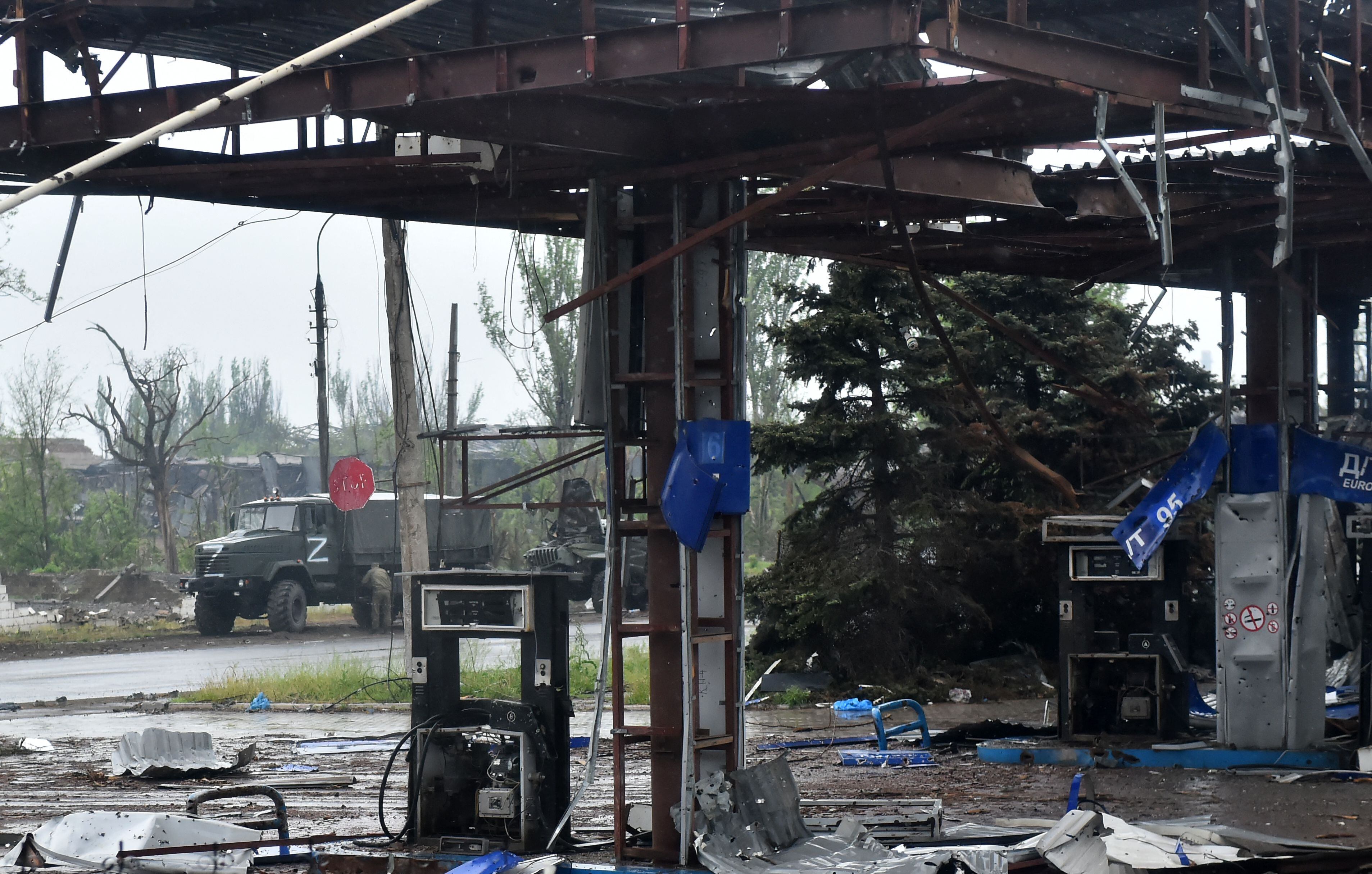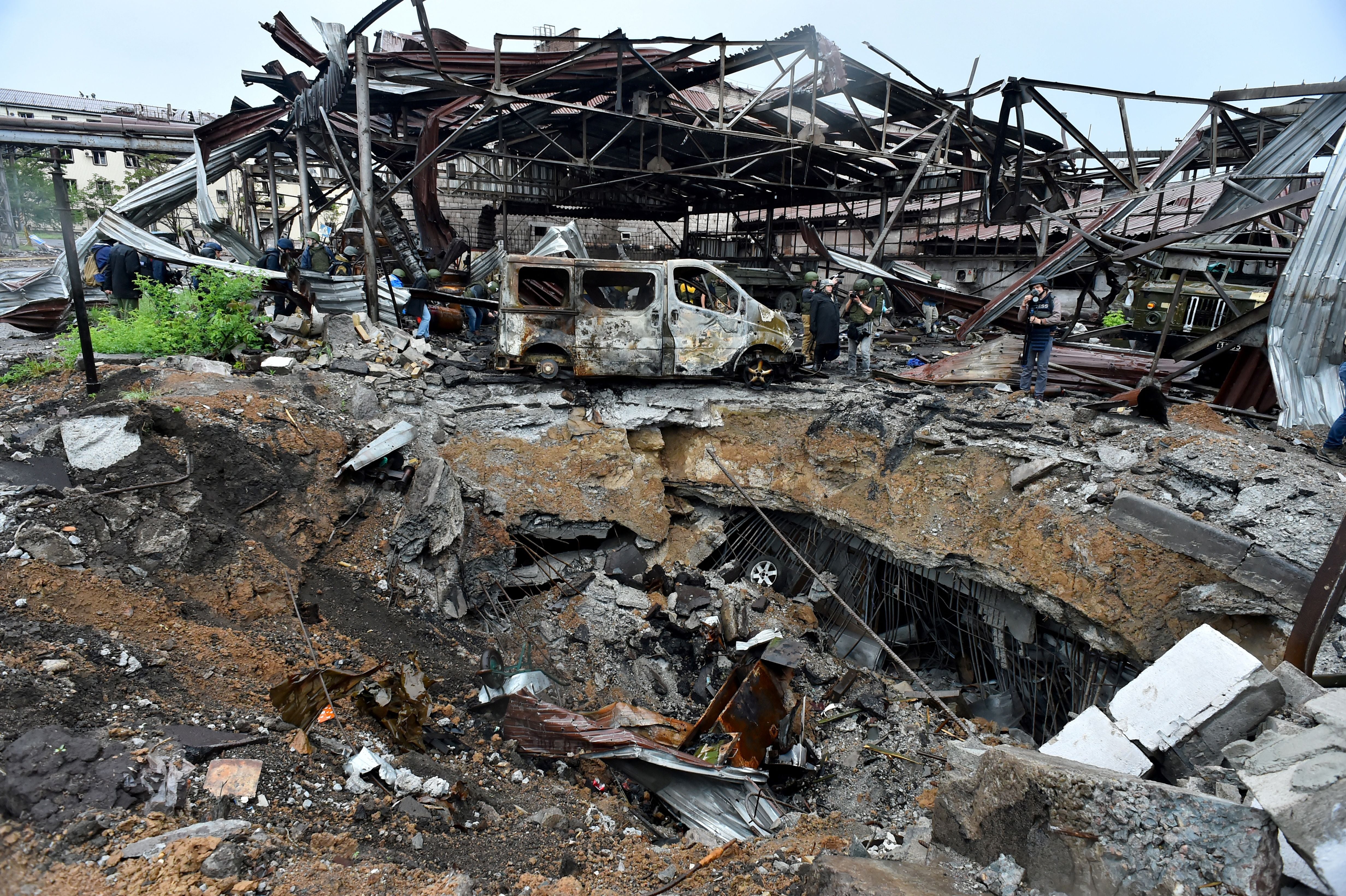The remains of charred buildings rise up in the rainy sky of Mariupol, the strategic Ukrainian city on the shore of the Sea of Azov, where the last defenders surrendered to the Russians. Given this, the few passers-by cry thinking about their future.
“What can I still expect? What can I say when the house is destroyed, when the lifetime is it destroyed?” asks Angela Kopytsa, 52.
Look: Captive Paramedic’s Body Camera Shows First-Hand Horror of Mariupol War | VIDEO
The three months of combat left an apocalyptic landscape, an unknown number of dead and hundreds of thousands of displaced people.
Before the bombing, the city had more than half a million inhabitants. Now the avenues belong to the Russian military and its separatist allies.
On May 17, Russia claimed that more than 200 Ukrainian soldiers had surrendered at the besieged Azovstal steel mill, where they remained entrenched.
The industrial plant became a symbol of the fierce Ukrainian resistance, but on Friday, the Russian Ministry of Defense informed Russian President Vladimir Putin of the “total liberation” of the city after the surrender of the last defenders.
Kopytsa bursts into tears remembering that during the fighting she had to share morsels of food with her children and grandson and that “the children in the maternity hospitals were starving.”
“What future?” he asks in Russian. “I have no hope anymore,” she maintains.
“I dont have anything”
Russia is committed to rebuilding this southeastern city and turning it into a seaside resort. A difficult project to imagine among rubble and buildings destroyed by bombing.
AFP journalists traveled to Mariupol in the framework of a press trip organized by the Russian Defense Ministry. But the Russian military did not allow the media to get close to the huge steelworks.

The incessant fighting of the previous weeks has calmed down and some inhabitants dare to go out in search of food. There is no electricity in the city since the beginning of March.
Elena Ilyina, who taught at the University of Mariupol, says that his apartment burned down and that he now lives with his daughter. “I don’t have anything anymore,” she explains, crying.
“I would like to be able to live in my flat, in times of peace, chatting with my children,” says this 55-year-old woman. Her voice breaks into a sob.
During the visit, the Russian military also took the journalists to a local zoo, where animals, including bears and lions, were kept in cages but appeared to be healthy.

“We Survive”
Oksana Krishtafovich, 41, was a cook at a hotel in Mariupol. Now, she has been hired to take care of the animals, which she feeds every day.
“The restaurant where he worked was destroyed. Now they are my customers,” she says, bringing a bowl to some raccoons.
He admits that the city “lacks everything”, but tries to show a little optimism. “We adapt, we survive,” she says.
Sergei Pugach, who worked for 30 years at the Azovstal steelworks, now works as a zookeeper.
At the end of February, when Russia launched its offensive, he had only two months left before his retirement after 30 years of service. He now he doesn’t know if he will ever receive his pension.
But he doesn’t complain. “The Ukrainian people are not lazy. As soon as the shooting stopped, people came out of the cellars and looked for work. Some are already working,” the 60-year-old proudly tells.
Source: Elcomercio

:quality(75)/cloudfront-us-east-1.images.arcpublishing.com/elcomercio/JCSUK2ZCABGURJVSX7GPUXF6OI.jpg)

:quality(75)/cloudfront-us-east-1.images.arcpublishing.com/elcomercio/XORHL2HYGZHTBCZIW3D7W3UMSM.jpg)

:quality(75)/cloudfront-us-east-1.images.arcpublishing.com/elcomercio/BNNM5PSDD5BORPCTJSI3DZOWKA.png)
:quality(75)/cloudfront-us-east-1.images.arcpublishing.com/elcomercio/QODBVL6FGRECJGATS3JAZSTXS4.jpg)
